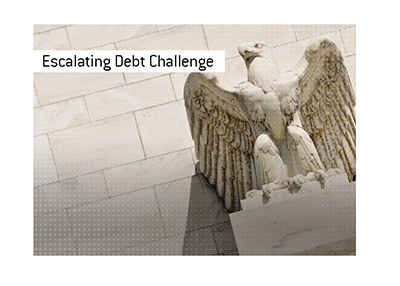With the Markets Still Very On Edge - What Will Happen In the Short Term?
 It's Friday evening. The $700 billion dollar bailout (actually, it's more than that, but whatever) has now been passed by both the Senate and the House of Representatives and signed into law by President Bush.
It's Friday evening. The $700 billion dollar bailout (actually, it's more than that, but whatever) has now been passed by both the Senate and the House of Representatives and signed into law by President Bush. On Monday, the stock markets tanked after the bailout was rejected by the House of Representatives. Most people figured that once the bailout was passed into law, the stock market would soar due to alleviated concerns over the credit crunch. It didn't really work out like that though - the markets did a dramatic about-face on Friday and ended the day substantially lower. The Dow Jones Industrial Average fell a total of 450 points from its high of the day to where it closed. This sudden sell-off on Friday afternoon has left many traders and investors extremely nervous heading into the weekend. Many thought that the markets would soar after the bailout was signed into law, but that didn't happen. Well, what now?
Even though the bailout has passed, there is still a major liquidity problem throughout the world. Banks are extremely fearful about lending to other banks, which leads them to hoard cash. Banks are avoiding even making short-term loans to other banks. Why? They don't trust other banks. This problem has not been solved with the passing of the bailout plan. LIBOR (the rate at which banks borrow from each other) is still rising, a clear sign that banks are still hoarding cash.
Credit is still very, very tight. The president of Chrysler, Jim Press, remarked that the "credit window is closed." The commercial paper market is under "complete duress." The credit markets need to start flowing again or else many companies will start to crack under the pressure. Corporations rely on the commercial paper market to sustain their operations.
So .. what now?
There are a few things that are almost definitely going to happen in the short-term, from most likely to the least likely:
1. The ban on short-selling will soon expire. The SEC released a statement today saying that the ban on short-selling certain stocks will expire on October 8th.
2. There will be an interest rate cut. This is almost a certainty at this point, especially if the markets continue to struggle next week. I would bet on a cut of 50 to 75 basis points.
3. A further increase of the $250,000 FDIC insurance cap. If there is another big bank failure, started by a "silent run on the bank" (like in the case of Wachovia), then there is a much greater likelihood of another increase on the FDIC cap. Some have been talking about instituting an unlimited cap in order to keep people and businesses from moving funds from bank to bank.
The likelihood of a crash seems much higher now than compared to last week. Last week there was a general acceptance that the bailout was going to be passed, and many investors were hanging their hats on that knowledge. While the markets were gloomy, there was still a sense of optimism that things would be better after the bailout plan was signed into law.
But what now? What happens if the market sells off early next week? What will investors be reassured by then?
Next week's stock market performance will certainly be interesting. I have a bad feeling in the pit of my stomach - let's hope that I'm wrong. While the bailout did pass, there are many extremely worrying things still going in the financial markets that need to be addressed, and soon.
Filed under: The Economic Meltdown | General Market News | General Knowledge



